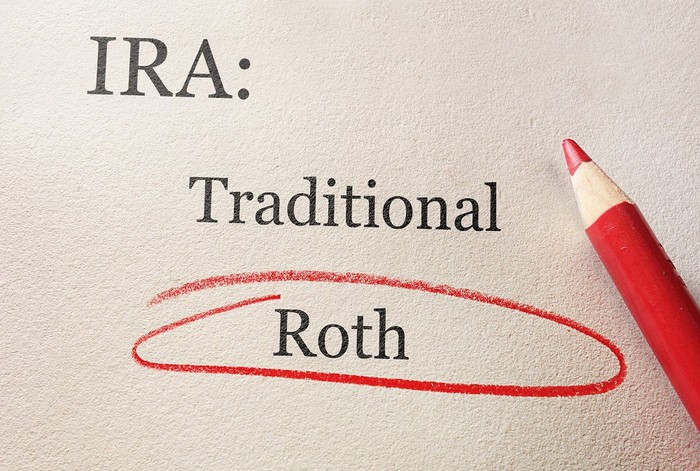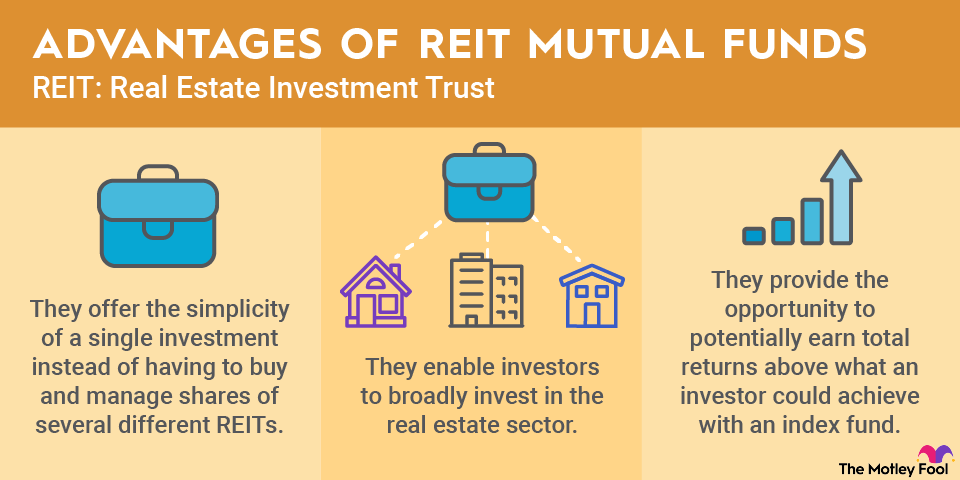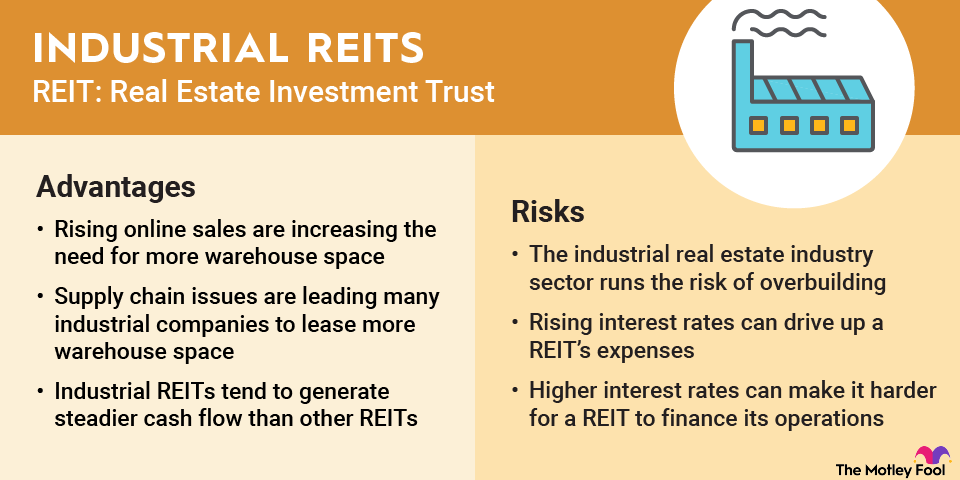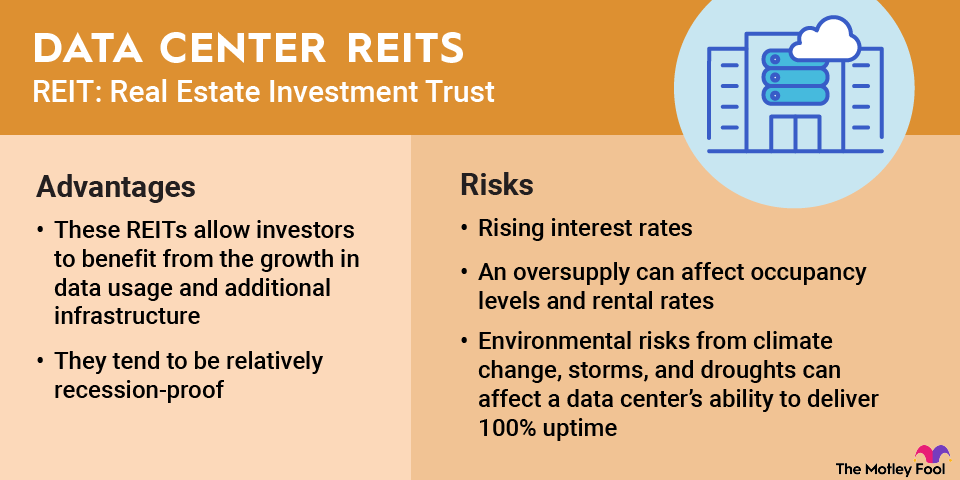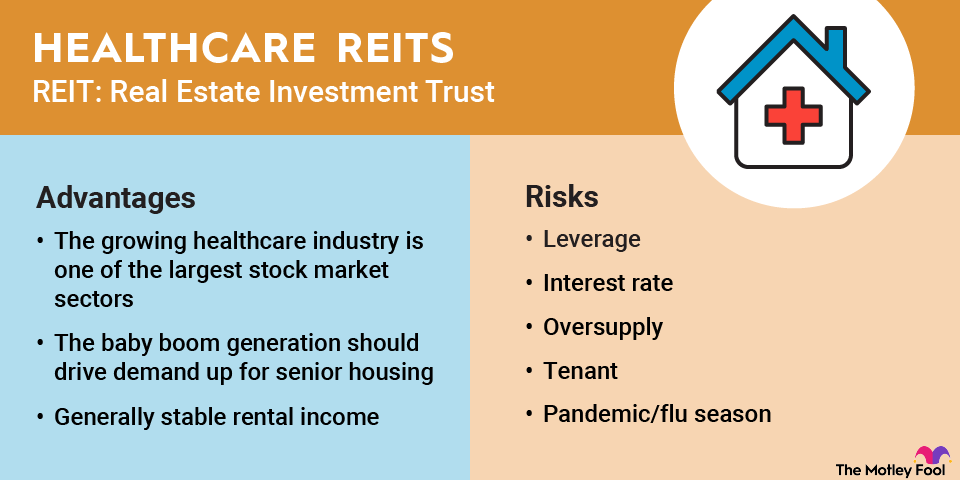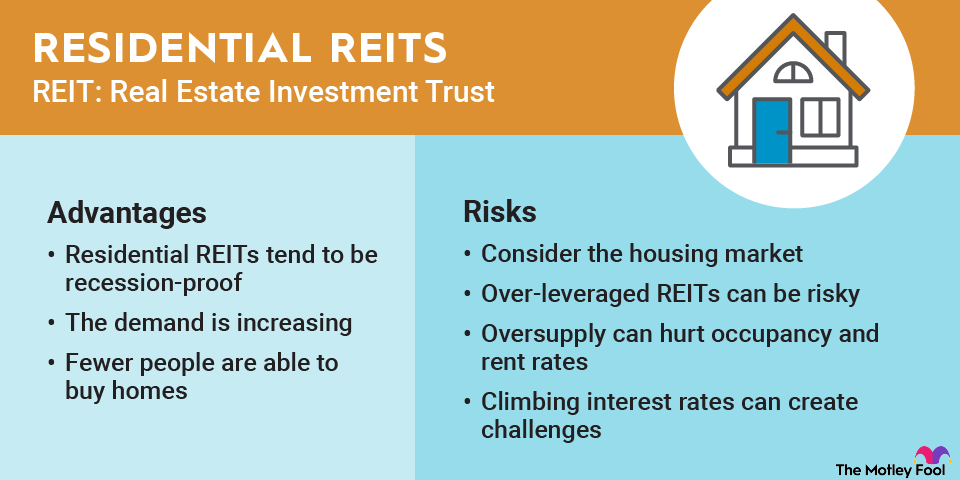Congress created real estate investment trusts (REITs) in 1960 to enable anyone to invest in wealth-creating commercial real estate. Exchange-traded funds (ETFs) have since made it even easier to invest in REITs. REIT ETFs allow anyone to invest broadly across the REIT sector to quickly add diversified real estate exposure to their portfolio.
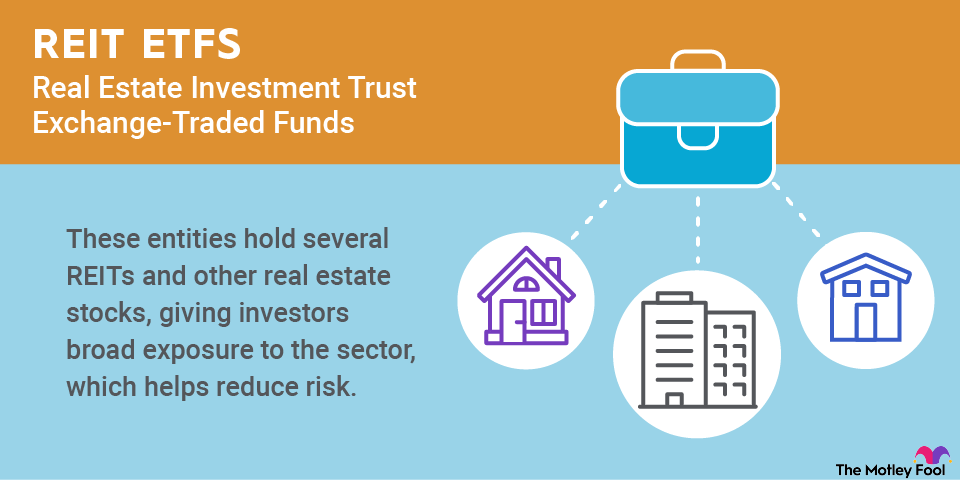
Here's a closer look at how these two investment vehicles can combine into an easy way to start investing in real estate.
Best REIT ETFs
These REITs own pools of rental properties or real estate-backed loans that generate rental or interest income. They must distribute at least 90% of their taxable net income to shareholders via dividend payments to remain in compliance with IRS regulations. REITs require less work and capital than buying a property outright. They're also less risky, highly liquid, and have historically delivered strong performances versus the S&P 500.
However, with almost 200 publicly traded REITs focused on a dozen property sectors, it can be challenging for beginning investors to know where to start. While you could invest in individual REITs, you risk picking the wrong ones that are at risk of a dividend cut.
That's where ETFs can help. These entities hold several REITs and other real estate stocks, giving investors broad exposure to the sector, which helps reduce risk. Some of the top real estate ETF options are:
Top REIT ETFs | Ticker Symbol | Performance (Total Returns) Over the Past 12 Months | Inception Date | Issuer | Assets Under Management (AUM) |
|---|---|---|---|---|---|
Vanguard Real Estate ETF | -0.4% | 9/23/2004 | The Vanguard Group | $33.3 billion | |
iShares U.S. Real Estate ETF | -0.3% | 6/12/2000 | BlackRock (NYSE:BLK) | $3.7 billion | |
Schwab U.S. REIT ETF | -1.6% | 1/13/2011 | Charles Schwab (NYSE:SCHW) | $8.2 billion | |
Real Estate Select SPDR Fund | -1.1% | 10/7/2015 | SSGA Funds Management, Inc. | $7.6 billion | |
iShares Select U.S. REIT ETF | -1.4% | 1/29/2001 | BlackRock | $1.9 billion |
Here's a closer look at these top REIT ETFs.
1. Vanguard Real Estate ETF
The Vanguard Real Estate ETF is a behemoth among REIT ETFs, with about $33 billion in assets under management (AUM), more than four times its nearest competitor. It invests in REITs and other real estate stocks. In late 2025, the ETF held more than 150 real estate stocks, led by the following five:
- Vanguard Real Estate II Index Fund: 14.5% of the portfolio
- Welltower (WELL +0.24%): 6.6%
- Prologis (PLD -1.20%): 6.0%
- American Tower (AMT -1.53%): 5.1%
- Equinix (EQIX +0.80%): 4.3%
This broad REIT ETF offers investors several forms of diversification. Of its more than 150 stocks, its largest holding is a related REIT index fund that also holds shares of more than 150 REITs and real estate stocks. Meanwhile, its other top five holdings include the biggest REITs by market cap. This list features the largest industrial REIT (Prologis), the top infrastructure REIT (American Tower), the leading data center REIT (Equinix), and the biggest healthcare REIT (Welltower). That gives investors some diversification across property types.
Overall, its 10 largest holdings make up more than 50% of its portfolio. As a result, it also focuses on the largest REITs that dominate the industry.
One factor that sets the Vanguard Real Estate ETF apart from others is its ETF expense ratio. At 0.13%, it's far less than the industry average of 0.22% of similar funds, enabling investors to keep more of their returns -- and those returns have included the REIT ETF's enticing dividend yield of around 3.6% in late 2025.
2. iShares U.S. Real Estate ETF
The iShares U.S. Real Estate ETF invests in domestic real estate stocks and REITs. The ETF, managed by BlackRock, had more than 60 holdings as of late 2025, led by the following five:
- Welltower: 9.1% portfolio weighting
- Prologis: 8.7%
- American Tower: 6.3% weighting
- Equinix: 4.9%
- Simon Property Group (SPG -0.43%): 4.3%.
Those are five of the biggest REITs and operate across several property types, including industrial, communications infrastructure, data centers, and self-storage REITs. Overall, the ETF's 10 largest holdings make up over 50% of its portfolio, providing investors with similar diversification as the Vanguard's ETF, even though it has fewer holdings.
One of the downfalls of this REIT ETF is its expense ratio. At 0.38%, it's well above the industry average, so it has slightly underperformed its benchmark over the years as the higher fee has eaten into its returns.
The higher fee also eats into the REIT ETF's 2.3% dividend yield (over the trailing 12-month period as of late 2025).
3. Schwab US REIT ETF
This ETF provides simple access to REITs since it only holds those entities, unlike other ETFs that include non-REIT real estate stocks in their portfolio. It had more than 120 REITs in the fund as of late 2025, led by the following five:
- Welltower: 9.1%.
- Prologis: 8.7%.
- American Tower: 6.1%
- Equinix: 5.0%.
- Simon Property: 4.3%
Like many other REIT ETFs, the Schwab fund holds REITs based on their market cap instead of using an equal weighting system, so its top holdings are almost identical to those of most other top REIT ETFs. Meanwhile, its top 10 make up about 50% of its portfolio.
Its expense ratio stands out. It's an ultra-low 0.07%, allowing investors to keep more of the returns from the underlying REITs. That includes a lucrative dividend income (3.0% dividend yield over the trailing 12-month period).
4. Real Estate Select SPDR Fund
The Real Estate Select SPDR Fund allows investors to make a more direct investment in real estate. The ETF only holds REITs in the S&P 500 index, which limits its investment pool. As of late 2025, the ETF held only 30 REITs, led by some familiar names:
- Welltower: 10.1%.
- Prologis: 9.6%.
- American Tower: 7.0%.
- Equinix: 6.8%.
- Simon Property: 4.7%.
As the five largest REITs, it's no surprise to see this group leading the way. And because this ETF concentrates only on REITs in the S&P 500, its top 10 holdings made up more than 60% of its portfolio. That makes it an ideal option for investors seeking to focus on the largest REITs.
The ETF has a low expense ratio of 0.08%. Consequently, it's a solid option for investors seeking low-cost exposure to the biggest REITs. The fund pays attractive dividends, which drives the REIT ETF's roughly 3.4% dividend yield (on a trailing 12-month basis).
5. iShares Select U.S. REIT ETF
The iShares Select U.S. REIT ETF is another REIT ETF managed by BlackRock. It takes a slightly different approach to investing in REITs, focusing on large real estate companies that are dominant in their respective property categories. As a result, it has a concentrated portfolio of 30 REITs.
However, these 30 include some familiar names, led by:
- Prologis: 9.3%
- Welltower: 9.3%
- Equinix: 8.3%
- American Tower: 6.7%
- Digital Realty Trust: 5.4%
Overall, its top 10 holdings made up more than 60% of its portfolio as of mid-2025.
Because the ETF takes a more active approach to investing in REITs, it charges a relatively higher expense ratio of 0.32%. It also offered a lower dividend yield (2.5% on a trailing 12-month basis). It's best for investors who want to focus on the dominant REITs without limiting themselves to only those in the S&P 500.
Benefits and drawbacks of investing in REIT ETFs
Investing in REIT ETFs has its share of pros and cons. Some of the benefits include:
- Diversification: They provide broad diversification across the entire REIT sector, which can help lower your portfolio's risk profile.
- Income: REITs pay dividends, which REIT ETFs distribute to investors each quarter.
- Capital appreciation potential: REITs can deliver price appreciation as they grow their portfolios, earnings, and dividends.
On the other hand, REIT ETFs have some cons, such as:
- Underperformance potential: REIT ETFs can underperform the share prices of the top REITs.
- Costs: REIT ETFs charge investors a management fee (ETF expense ratio), which can eat into an investor's returns.
Related investing topics
These ETFs make it easy to invest in REITs
REITs have historically generated attractive total returns for investors by providing them with above-average dividend income and price appreciation. With so many great ones to choose from, it can be hard for investors to determine the best REITs for their portfolio. That's where REIT ETFs can help. They make it easy to invest in the sector by providing investors with broad exposure to the leading REITs. Although most REIT ETFs have similar top holdings, the best ones offer their own unique spin by giving investors several excellent options.















